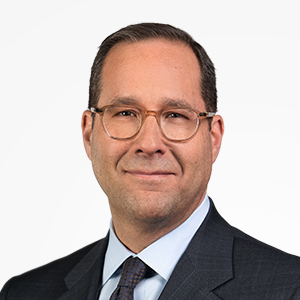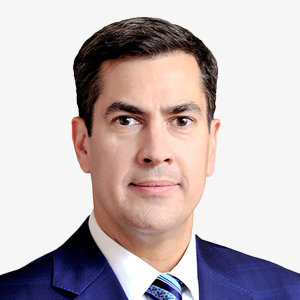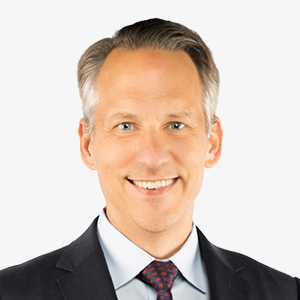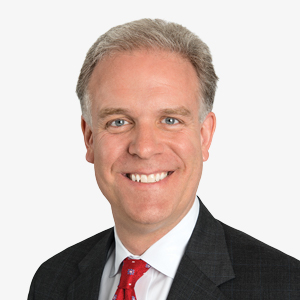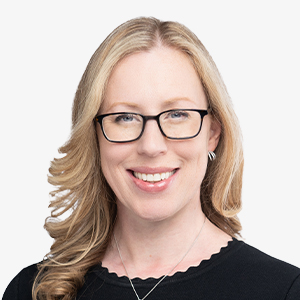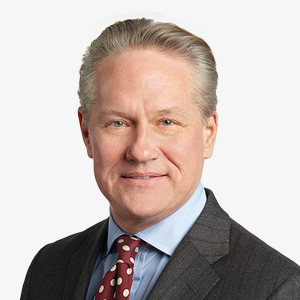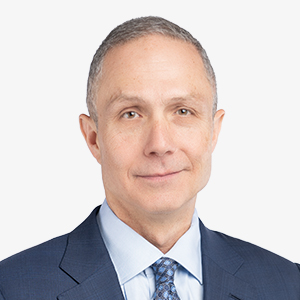
Solving for 2025

1. A Year of Above-Trend Growth
While the politics may change, industrial policy aimed at influencing domestic production patterns will continue, whether achieved via government spending and investment, tax policy, trade policy, deregulation or other means. If inflation can be contained—and we think it can—central banks can stand aside and allow economies to run a little warm. That is a recipe for above-trend U.S. GDP growth, which could drag some of the world’s other economies with it. The debt and deficit implications, and the question of whether capital is being well allocated, may surprise investors by being manageable concerns in 2025.
2. Expanding the Soft Landing by Broadening Real Income Growth
The detrimental impact of high inflation on lower-income consumers and small businesses has been an important driver of this year’s political uncertainty. Countries and governments that deliver moderate inflation and broader participation in positive real wage growth and positive real revenue growth will increasingly come to define success, visible in data points such as higher consumer confidence, political approval ratings and GDP growth rates. While it remains to be seen whether specific policy mixes can achieve this, we see evidence that the incoming U.S. administration at least recognizes the objective, and active industrial policy is evidence of growing recognition elsewhere.Consumer Price Index rises, October 2020 to October 2024

Five-year annualized price appreciation and current valuation

3. The Stage is Set for Broadening Equity Market Performance
Deregulation, business-friendly policies, moderating inflation and lower rates may allow a broadening of earnings growth and price performance. At the same time, mega-cap technology growth rates are likely to decelerate and normalize as capital expenditure ramps up. Value and small-cap stocks, and sectors such as financials and industrials, could begin to catch up with mega-cap technology. Non-U.S. markets could perform more strongly on higher global growth and lower commodity prices. Relative valuations, as well as fundamentals, should provide support for this theme.
4. Bond Markets Will Focus on Fiscal Rather than Monetary Policy
For more than two years, bond markets have been dominated by inflation data and the responses of central banks. We think a reacceleration of inflation can be avoided next year, and that central banks will settle into the dull routine of debating where the neutral rate sits. Bond investors will likely shift focus to the growth outlook through most of 2025, and possibly deficits and the term-premium question late in the year and into 2026. The result will be moderately steeper yield curves and a migration of bond market volatility from the short end of the curve to the intermediate and long parts.
U.S. Treasury and corporate bonds, yields and credit spread, November 2023 to November 2024

Number and value of worldwide merger and acquisition transactions, 1985 to 2024

5. Mergers and Acquisitions Are Set to Surge
Numerous factors are aligning to release a pent-up torrent of corporate dealmaking: above-trend growth; buoyant public equity market valuations; a more stable inflation and central bank outlook; the return of banks to the leveraged lending market; declining rates and tight credit spreads; and, perhaps most importantly, an expected change in regulatory stance in the U.S. That said, private equity secondaries and co-investments will continue to flourish as liquidity is still required to work through a huge backlog of mature investments, and it will remain challenging to raise new primary funds. Event-driven hedge fund strategies will benefit from a big new opportunity set.
Joseph V. Amato serves as President of Neuberger Berman Group LLC and Chief Investment Officer of Equities. He is a member of the firm’s Board of Directors and its Audit Committee. His responsibilities also include overseeing the firm’s Fixed Income and hedge fund businesses.
Previously, Joe served as Lehman Brothers’ Global Head of Asset Management and Head of its Neuberger Berman subsidiary, beginning in April 2006. From 1996 through 2006, Joe held senior level positions within Lehman Brothers’ Capital Markets business, serving as Global Head of Equity Research for the majority of that time. Joe joined Lehman Brothers in 1994 as Head of High Yield Research. Prior to joining Lehman Brothers, Joe spent ten years at Kidder Peabody, ultimately as head of High Yield Research.
He received his BS from Georgetown University and is a member of the University’s Board of Directors. He currently serves on the McDonough School of Business Board of Advisors and the Psaros Center for Financial Markets and Policy Board of Advisors. He is Co-Chair of the New York City Board of Advisors of Teach for America, a national non-profit organization focused on public education reform. He is also a Board Member of KIPP NJ, a charter school network based in Newark, NJ, which focuses on educational equity.
Shannon Saccocia, CFA, is Managing Director and Chief Investment Officer - Wealth for Neuberger Berman. As a member of the firm’s global Asset Allocation Committee, Ms. Saccocia works closely with investment leadership across Neuberger Berman to establish market views, strategic and tactical asset allocation, and portfolio recommendations. She leverages her deep expertise and decades of experience working with individuals, families, financial advisors and small institutions to deliver the firm's comprehensive investment capabilities to Wealth clients. Prior to joining Neuberger Berman in 2023, she was the Chief Investment Officer for five years for SVB Private and Boston Private Wealth, which SVB acquired in July 2021, overseeing portfolio construction, asset allocation, third-party manager selection, equity and fixed income portfolio management, performance and trading. Previously, she held senior roles at Banyan Partners and Silver Bridge Advisors focused on manager selection, asset allocation and portfolio construction.
Shannon received her BA in Economics and History from Brandeis University, and has been awarded both the Chartered Financial Analyst and Certified Investment Management Analyst® designations. Ms. Saccocia is a longtime CNBC contributor and is regularly featured in the financial media. She resides in the Boston area with her husband and two children.
